Maui wildfires lead to dire mental health crisis in Lahaina
LAHAINA, Hawaii — Kekoa Lansford can’t shake the images of glowing skeletons in burning homes and charred bodies in cars.
More than two months after a ferocious wildfire burned his West Maui community to the ground, killing at least 97 people, Lansford and other survivors say the trauma is as real now as the day it sent hundreds of people fleeing for their lives as flames chewed through their neighborhoods and thick, black smoke filled the skies.
“You just keep moving until you have time to process,” Lansford said. “Right now you don’t have time, so you just take it and you put it away and when you least expect it, it just comes out and f---s you up.”
Residents say they are haunted by a pervasive anguish. Many have trouble eating, sleeping or getting out of bed, and experience nightmares or flashbacks triggered by noises like the sound of a fire engine or a gust of strong wind. They describe a profound sadness, or heaviness — what Native Hawaiians call “kaumaha.”
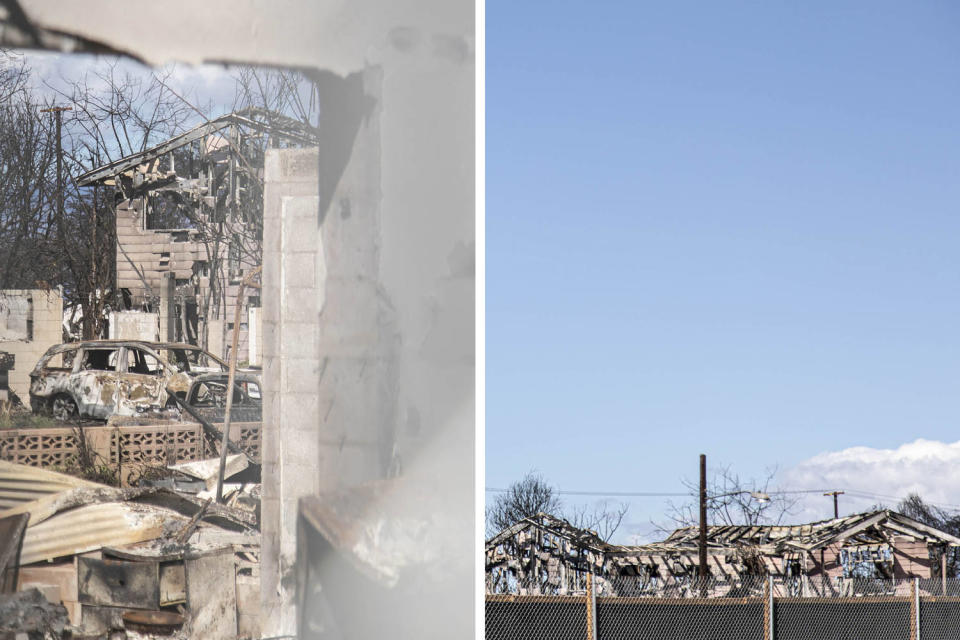
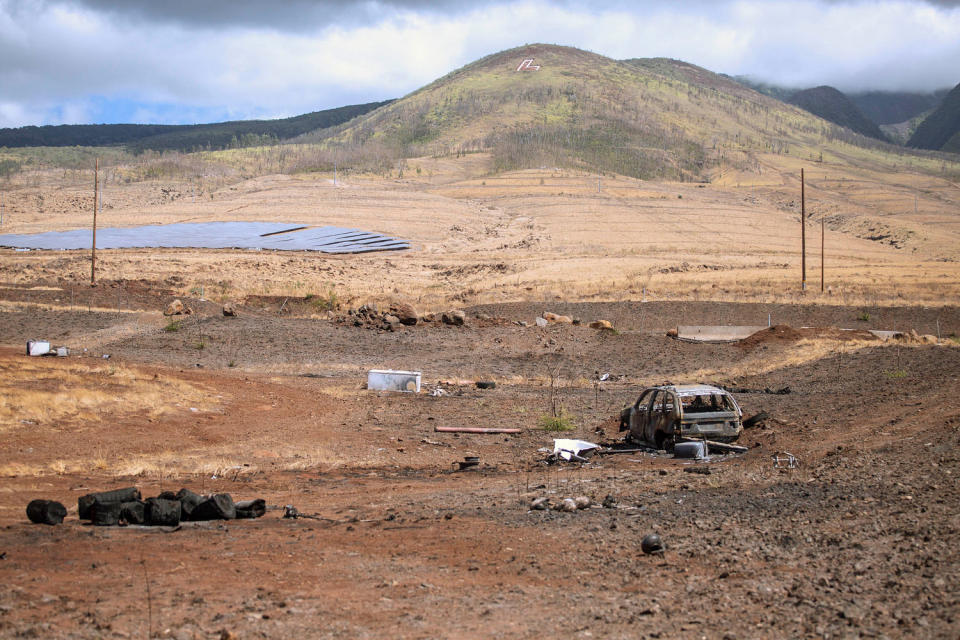
The official reopening of West Maui to tourists this month comes amid what local health care professionals and residents describe as an unprecedented mental health crisis as residents spiral into despair and crushing grief, straining an overburdened behavioral health system.
“We have seen a very large increase of individuals needing counseling and needing support for trauma processing,” said John Oliver, who oversees mental health services on Maui for the Hawaii Department of Health. “We expect that number to really grow in the next few months as individuals are able to focus more on their mental health once they are secure in their housing and they feel like their basic needs are met.”
Oliver said he heard about a grandmother and granddaughter who jumped into the ocean to escape the flames and still wake up tasting seawater.
Those who tried to rescue family members, friends or pets but were unsuccessful struggle with survivor's guilt, and some question whether they want to go on living, said Debbie Scott, a social worker and trauma therapist on Maui.
“I am noticing that there is an uptick in very dark thoughts, suicidal thoughts, passivity in terms of ‘I don’t know what I’m going to do. I just don’t even know if I want to be here,’” Scott said. “Losing pets and losing every belonging, losing history, losing tradition, has left souls pretty empty.”
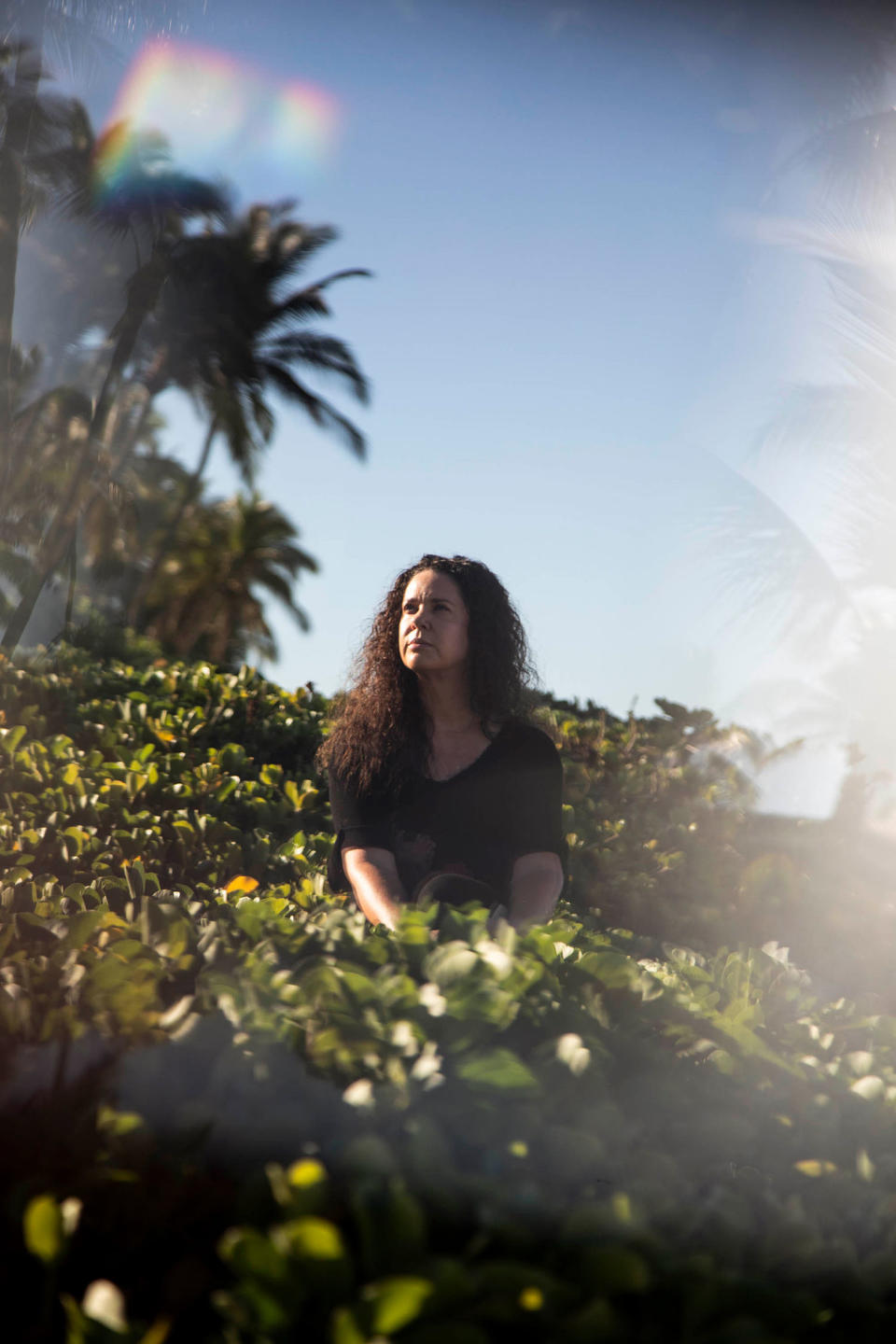
Lansford was one of many Lahaina residents who spent the first 24 hours after the fire helping to rescue people. A video of him standing in the street, angrily shouting for help from federal officials, became one of the fire’s most recognizable images.
Reigniting trauma from Maui’s colonial past
More than a dozen people interviewed by NBC News said they had heard stories of suicide attempts and deaths since the wildfires. None of the accounts could be independently verified, and Hawaii’s state health department said it has not recorded a higher suicide rate since the fires relative to historical averages. The department declined to provide details or precise numbers.
The Maui Police Department confirmed one suicide since the Aug. 8 wildfire, one of three that erupted on the island that day, but a spokesperson said it was not necessarily related to the disaster.
Still, suicide and depression remain a top concern among mental health professionals and residents, who whisper through what is colloquially known as the island’s “coconut network” about the toll inflicted on survivors.
Suicides are known to climb after large-scale disasters. A 12-year study found that suicide rates in U.S. counties that experienced a natural disaster increased 23% in the three years afterward relative to the three years prior.
Suicide rates among Native Hawaiians and Pacific Islanders have also risen in recent years. According to the Centers for Disease Control and Prevention, the rate increased nearly 16% in that group from 2021 to 2022.
But West Maui’s mental health crisis is distinctively dire, local psychologists and state health officials said. The wildfires reopened long-standing wounds from Hawaii’s colonial past while simultaneously destroying a resource residents are deeply connected to: the land.
“The loss of the land, because we are tied to it so intricately, has been the element that has caused the deepest devastation,” said Kalena Lanuza, a mental health nurse practitioner who works with pregnant and postpartum Native Hawaiians. Lanuza, a Native Hawaiian who lives in California, sees clients in Hawaii through telehealth.
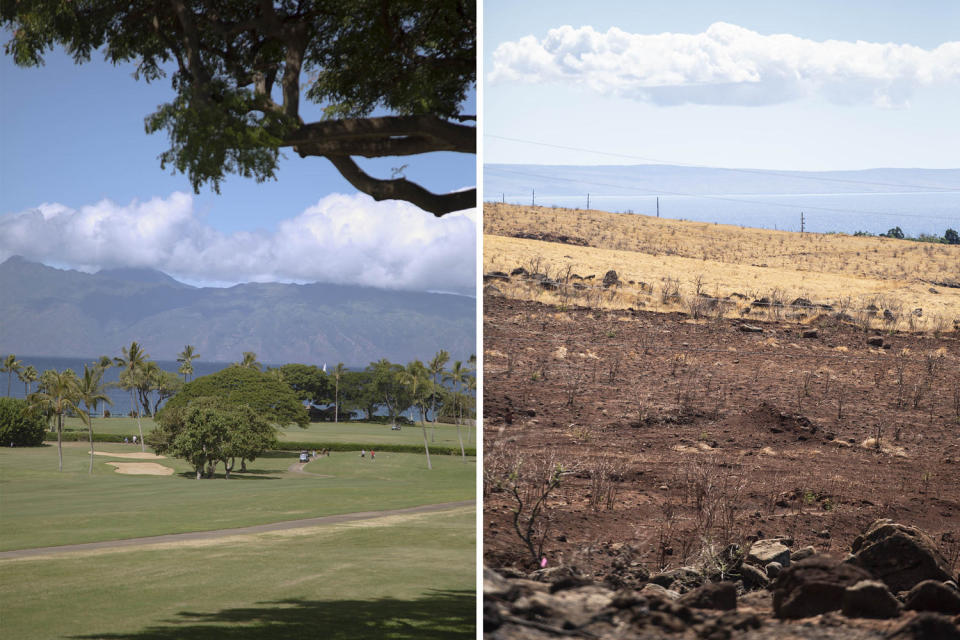
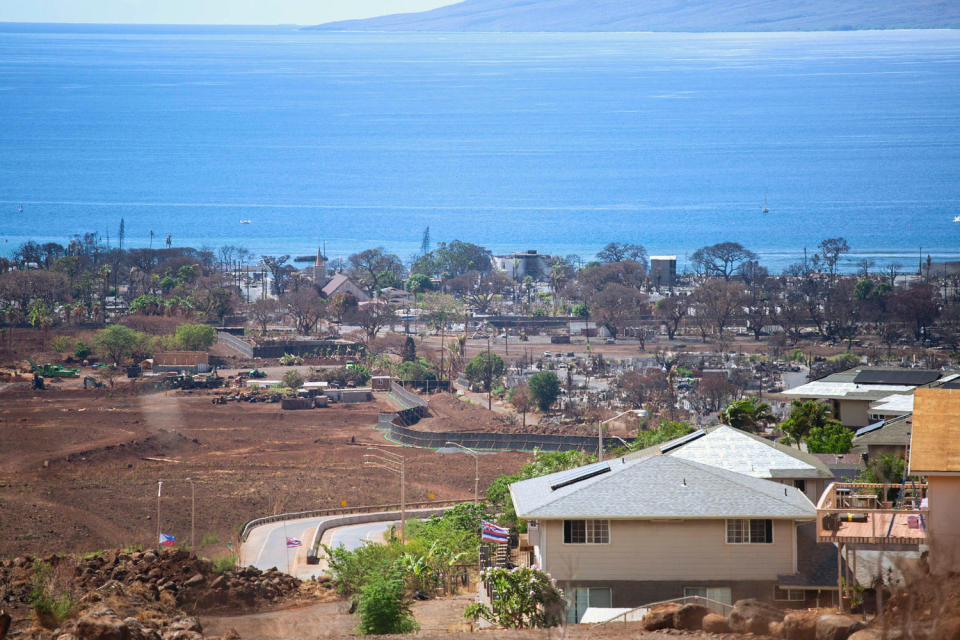
Land and water hold a profound cultural significance, and in Hawaiian tradition, humans (“kanaka”) and the land (“ʻāina”) are one entity, Lanuza said.
Many Native Hawaiians suffer from generational trauma dating back to 1893, when the U.S. military overthrew Hawaii’s constitutional monarchy, Lanuza said. As the former capital of the Hawaiian Kingdom, Lahaina was a vestige of that pre-colonial history.
Some residents said the wildfires and the state’s response, including reopening West Maui while some residents are still burying loved ones, has worsened frustrations. State and local officials allowed tourists to return to parts of West Maui on Oct. 8, and the remainder of the island, except the scorched sections of Lahaina, reopened Wednesday.
For some residents, financial losses have already been acute: Damage to the local economy has led some businesses to furlough workers, who then lost their health insurance. The destruction of the land and possible contamination of ocean water has also forced many Native Hawaiians to give up farming and fishing, their primary sources of income.
“It’s creating another layer of social issues on top of the already existing trauma of the fires,” Scott said.
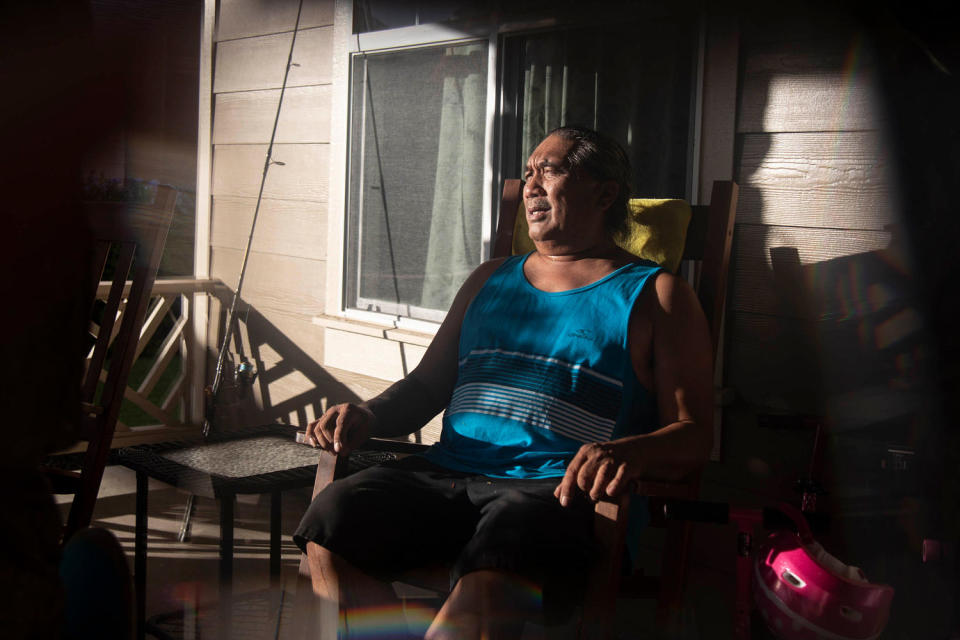
Finding ways to heal
After the fire, Paele Kiakona, who grew up in Lahaina, said he remained in fight-or-flight mode for several days. He was focused on finding loved ones and securing supplies for survivors, stopping only when he was forced into bed with flulike symptoms.
The respite led him to recognize his own suffering and accept that he had been stretched to a breaking point, Kiakona said. He turned moody and aggressive without realizing it, upsetting loved ones instead of comforting them.
“I deeply regret that,” he said.
Amber Bobin, a volunteer who is helping displaced Lahaina residents apply for government benefits, said that at one of three community dinners she hosted for people who lost their homes, “there was a 3-year-old, and all she kept on saying is, ‘School burn, school burn, school burn.’”
Both Scott and Lanuza said the growing mental health crisis is straining the system meant to help heal it.
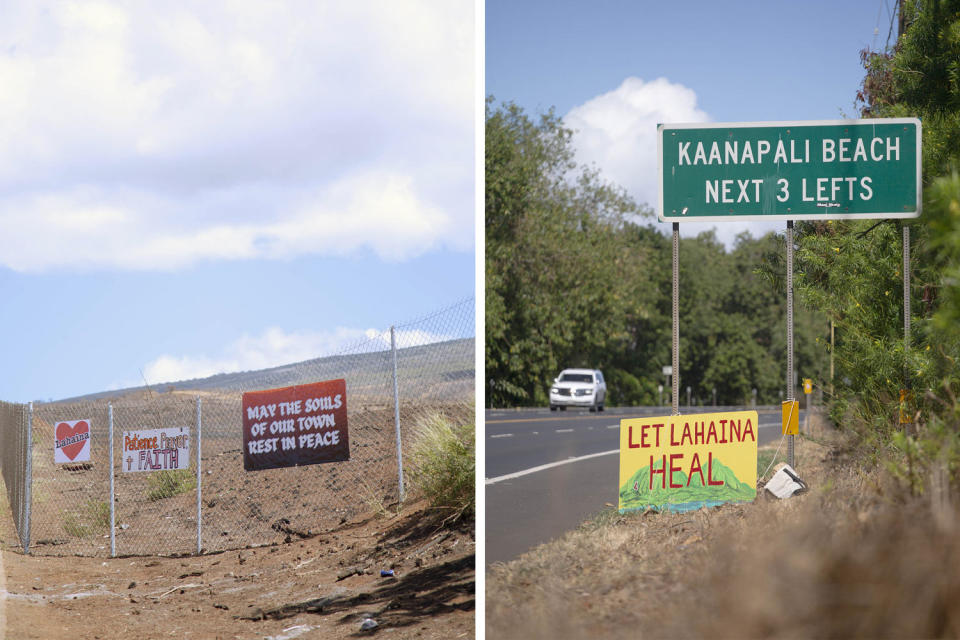
“I’m not denying that there are resources that are out there, but are there enough practitioners? Absolutely not,” Scott said.
Maui leaders are still trying to scale up the number of available mental health practitioners, Oliver said, estimating that roughly 2,000 fire victims may need intensive counseling.
He said Hawaii’s government is doing its best to make mental health resources available to those who need it by opening up two state-run mental health clinics to wildfire survivors and working to open a third. Behavioral health specialists have been dispatched to visit homebound elderly residents and hotels where displaced residents are staying.
In August, Gov. Josh Green issued an emergency order that allows out-of-state mental health counselors to practice in Maui without a license. But Lanuza said it’s important for Native Hawaiians to find a therapist who comes from the same culture or at least understands their community’s history.
“It’s extremely rare to find a Native Hawaiian therapist on the whole island of Maui,” she said.
For that reason, many Hawaiians are disinclined to seek counseling, making it difficult to determine the magnitude of suffering, she said.
Some survivors have found other ways to deal with their grief, residents said. They play music, sing, plant vegetables and embrace local traditions like repeating Indigenous chants and prayers.
For some who fled into the water, the ocean is still a source of trauma. But others see it as a place to heal. In September, hundreds of community members participated in a paddle-out, a traditional Hawaiian tribute in which surfers paddle out on the water, join hands and form a circle to honor lives lost.
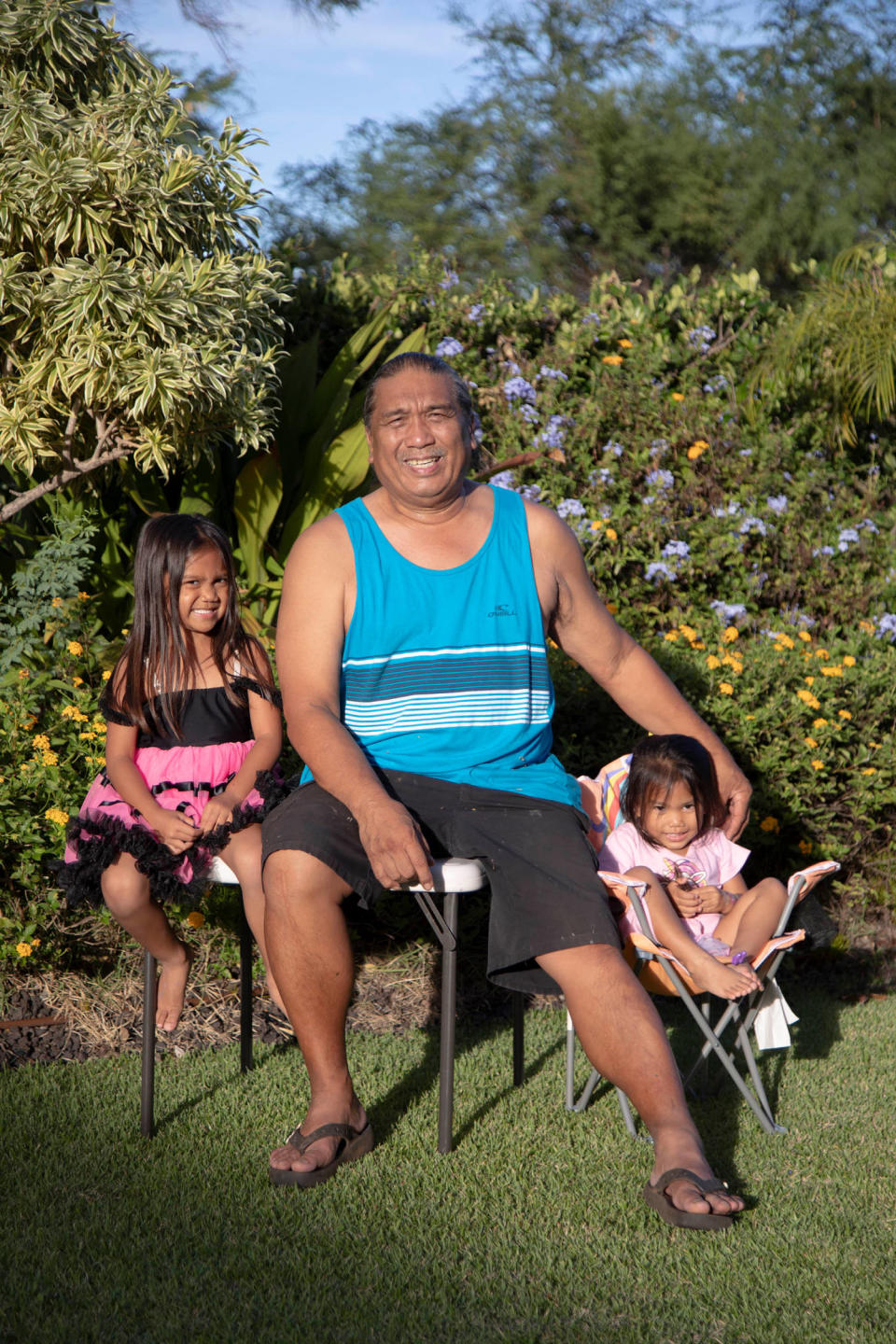
Survivor Denley Ompoy, who lost a sister and brother-in-law in the fire, along with multiple family homes, said he has found refuge in his family and church community. The family had lived together on neighboring plots in Lahaina before the fire, but they now squeeze 10 relatives into a rental on the east side of the island.
Ompoy said some share the anger and frustration seen in many survivors, but he chooses to focus on Lahaina’s future, a perspective he developed 50 years ago when he lost his mother, father and brother in a car accident.
“Sometimes our anger puts us in the wrong place, but that’s like being angry with the wind,” he said. “We’ll see our loved ones again, even though they left us in such a tragic way.”
If you or someone you know is in crisis, call 988 to reach the Suicide and Crisis Lifeline. You can also call the network, previously known as the National Suicide Prevention Lifeline, at 800-273-8255, text HOME to 741741 or visit SpeakingOfSuicide.com/resources for additional resources.
Alicia Victoria Lozano reported from Maui and Aria Bendix from New York.
This article was originally published on NBCNews.com

